- About Ramapo
- Academics
- Admissions & Aid
- Student Life
- Athletics
- Alumni
- Arts & Community
- Quick Links
- Apply
- Visit
- Give
Center for Data, Mathematical, and Computational Sciences
November 6, 20222022 Information Technology, Data Science & Computer Science Career Fair
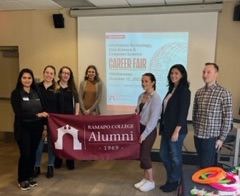
Wednesday October 12, 1-3 pm, Alumni Lounges
On October 12, the Cahill Career Center hosted a specialized fair for Computer Science, Mathematics, Data Science and Information Technology majors to connect them to leading employers within their fields. 13 employers from a wide range of industries attended this event, with nearly 100 DMC students in attendance. Employer feedback was very positive, with high praise for RCNJ students on their preparedness and levels of knowledge. 100% of employers indicated that they would come back and attend more RCNJ events, with a highlight being the amount of engagement they each received from students in attendance. On the student end, surveys indicated more positive outcomes, with a focus on networking and the wide range of job opportunities that were discussed at the fair by employers.
The following employers were represented at this event: ACord Insurance, Aspen Insurance, Brooksource, Crestron Electronics, Gain Theory, Reckitt, SciTec, In., Selective Insurance Company of America, Sharp Electronics, United States Secret Service, UPS as well as the DMC Center and RCNJ Graduate Admissions. Of note, 7 RCNJ alumni represented their respective Employers at this Fair!
Categories: Data Science, MSCS, MSDS
October 25, 20222022 Raciti Memorial Lecture - The Curious Economics of Big-time College Sports
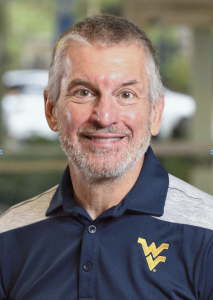
Thursday October 27, 6 pm, ASB 136
Please join us for a DMC Lecture Series event on economics, data, and sports – given by Dr. Brad Humphreys, West Virginia University and the Eastern Economic Association!
Dr. Humphreys is one of the leading sports economists in the world today, mainly known for his contributions to the economics of sports stadiums and the economics of college athletics. He is the 2016-17 Benedum Distinguished Scholar in Social and Behavioral Sciences at WVU and is the recipient of the 2022 Peter Sloane Award for his research contributions to European sports economics. He served as the President of the Eastern Economic Association in 2021-2022.
He is Editor-in-Chief of Contemporary Economic Policy, a general interest economics journal and serves on the editorial boards of the Journal of Sports Economics, the International Journal of Sport Finance, the International Journal of Sport Management and Marketing, and International Gambling Studies. Dr. Humphreys has published over 100 peer reviewed journal articles in leading economics journals.
This talk is sponsored by the Eastern Economic Association in partnership with the Sabrin Center and the Center for Data, Mathematical, and Computational Sciences.
Categories: Data Science, Lecture Series, MSDS
October 11, 2022Using Data and Analytics in Sports
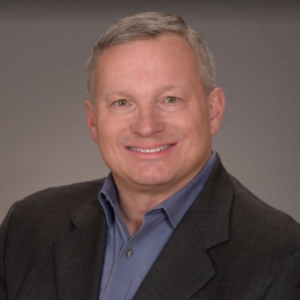
Friday, October 21st at 12-1pm in ASB 225
Please join us for a DMC Lecture Series event on Using Data and Analytics in Sports, given by Dr. Scott Nestler, Principal Data Scientist & Optimization Lead, SumerSports LLC!
The use of data and analytics in sports has changed significantly in the nearly two decades since the release of the book “Moneyball” in 2003. Moving from descriptive to predictive and prescriptive (in terms of the types of analytics used), this evolution was enabled by changes in the type (box score, play-by-play, tracking) of data, as well as growth in quantity and improvements in quality. Analytic methods are being used to measure and predict individual and team performance, prevent injuries, and improve business outcomes. Besides providing a variety of examples from across different sports, I will provide suggestions on how those seeking to get into the growing field of sports analytics can ensure that they have the skills that are sought by teams and other organizations.
This talk was supported by a grant from the Ramapo College Foundation.
Scott is a “pracademic” who joined the Sumer Sport team in 2022, after a variety of experiences, including: Data Science Senior Manager / Director of Statistics & Modeling at Accenture Federal Services; Academic Director for the MS in Business Analytics program at Notre Dame, and a full career as an operations research analyst (and leader of analytic teams) in the U.S. Army. He teaches as an Adjunct Faculty Member for Notre Dame and SMU. Scott is very involved as a volunteer and leader with the Institute for Operations Research and the Management Sciences (INFORMS), where he served as the first Chair of the Analytics Certification Board, the governing body for the Certified Analytics Professional (CAP) program. He has a PhD in Management Science from the University of Maryland – College Park, is a CAP, and also an Accredited Professional Statistician (PStat). He is co-author of the book
“Mathletics: How Gamblers, Managers, and Fans Use Mathematics in Sports,” Princeton University Press, 2002.
His motto is, “Make yourself useful, doing something hard, with good people.” Scott enjoys traveling (he’s been to all 50 states and 25 countries), reading, cooking, and sitting around the firepit with family and friends.
Categories: Lecture Series
September 27, 2022Data Assimilation and Dynamical Systems Analysis of Circadian Rhythmicity and Entrainment

Wednesday, October 12th at 6-7pm in ASB 327
Please join us for a DMC Lecture Series event on Data Assimilation and Dynamical Systems Analysis of Circadian Rhythmicity and Entrainment, given by Dr. Casey Diekman of the New Jersey Institute of Technology!
Circadian rhythms are biological oscillations that align our physiology and behavior with the 24-hour environmental cycles conferred by the Earth’s rotation. In this talk, I will discuss two projects that focus on circadian clock cells in the brain and the entrainment of circadian rhythms to the light-dark cycle. Most of what we know about the electrical activity of circadian clock neurons comes from studies of nocturnal (night-active) rodents, hindering the translation of this knowledge to diurnal (day-active) humans. In the first part of the talk, we use data assimilation and patch-clamp recordings from the diurnal rodent Rhabdomys pumilio to build the first mathematical models of the electrophysiology of circadian neurons in a day-active species. We find that the electrical activity of circadian neurons is similar overall between nocturnal and diurnal rodents but that there are some interesting differences in their responses to inhibition. In the second part of the talk, we use tools from dynamical systems theory to study the reentrainment of a model of the human circadian pacemaker following perturbations that simulate jet lag. We show that the reentrainment dynamics are organized by invariant manifolds of fixed points of a 24-hour stroboscopic map and use these manifolds to explain a rapid reentrainment phenomenon that occurs under certain jet lag scenarios.
This talk was supported by a grant from the Ramapo College Foundation.
Casey Diekman is a mathematical biologist and Associate Professor in the Department of Mathematical Sciences at the New Jersey Institute of Technology. He obtained his PhD in Bioinformatics and Industrial & Operations Engineering from the University of Michigan in 2010. Diekman was then a Postdoctoral Fellow at the Mathematical Biosciences Institute at Ohio State University until joining the NJIT faculty in 2013. Recently, he spent a year in residence at the University of Exeter as a US-UK Fulbright Scholar. Diekman’s research interests include mathematical and computational modeling of circadian (~24-hour) rhythms such as the sleep-wake cycle, data assimilation, machine learning, and dynamical systems analysis. His research has been supported by the National Science Foundation and the US Army Research Office.
Categories: Lecture Series
September 12, 2022Welcome new MS and 4+1 in Data, Mathematical, and Computational Sciences students!
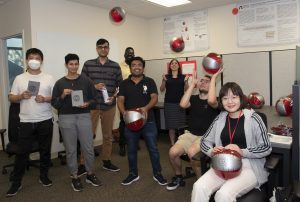
We are excited to welcome students into our new MS in Applied Mathematics and MS in Computer Science programs at Ramapo College! They join our MS in Data Science students as members of our DMC community. All of these new programs are taught by our dedicated full-time faculty. We had a chance to meet them on Thursday, September 8th at the DMC Meet-and-Greet. We are so happy you chose to continue your education with us!
Categories: Uncategorized
August 25, 2022Ramapo College’s Master of Data Science Program Recognized by ‘Fortune’ among the Best in the Country
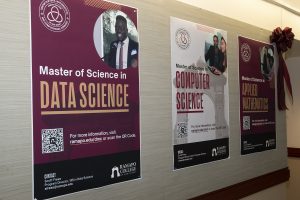
Ramapo College of New Jersey’s Master of Science in Data Science (MSDS) program has been determined by Fortune to be among the top programs in the country. Ramapo’s program is also the only New Jersey program to be included in Fortune’s first-ever ranking list of 28 graduate-level data science programs nationwide.
Categories: Data Science, MSDS
July 2, 2022DMC Advisory Board Member - Keith Osani
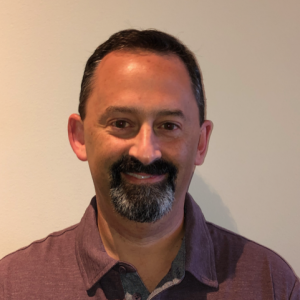
Ramapo College’s Center for Data, Mathematical, and Computational Sciences welcomes Keith Osani to our Advisory Board! Our Advisory Board’s mission is to assist the Center in aligning our curriculum with industry needs and expectations, helping us to promote our curriculum, and guide us in developing our sponsored fieldwork experiences to our students.
Keith earned a BS in Computer Science and Applied Physics from SUNY Albany and graduated from Ramapo College in 2022 with a Master’s Degree in Data Science. The
early part of his career was spent working as a consultant where he focused on custom software and web development for a variety of clients. For the last 20 years, Keith has worked in the music industry for Sony Music Group. Over the years with Sony, he has had the opportunity to work in royalties, digital supply chain and most recently data reporting and analytics. He is currently the Vice President of Data and Analytics in the Global Technology group. In this role, Keith leads a data engineering team responsible for the collection and storage of vast amounts of streaming consumption data reported by providers such as Spotify, Apple Music and Amazon. His team is also responsible for supporting Sony’s global community of analysts.
Categories: Data Science, MSCS, MSDS
April 15, 2022Grand Opening of the Center for Data, Mathematical, and Computational Sciences

Wednesday, April 27th at 6pm
ASB 123
Join us in opening the new Center for Data, Mathematical, and Computational Sciences. This research space serves as a place for graduate students and students in 4+1 programs to work in groups, deliver presentations, and hold team meetings. It’s a great place to hold faculty/student meetings and research discussions, and to invite our external partners to campus.
For more information contact Dr. Amanda Beecher (abeecher@ramapo.edu)
Categories: Data Science, MSCS, MSDS
April 4, 2022Fall 2022 DMC Course Schedule
1st Year Students
Welcome to Ramapo College of New Jersey! Whether you are entering the MS in Data Science, Applied Mathematics, or Computer Science, there are a few things you will want to take care of to get ready for your first semester. Admissions has a guide for admitted students, which outlines the registration process and a number of other things of interest.
Fall 2022 Course Schedule
-
CMPS 547 – Foundations of Computer Science
This course provides a foundational overview of programming language design, including compiled languages as well as higher level scripting languages. The course introduces students to concepts such as grammars, binding, scope, flow control, and data abstraction – through the lense of multiple languages. Students will also gain experience programming across language interfaces. This course serves 3 core purposes as a foundational course for MSCS students: (1) Principles of Programming Languages – this course serves as a general introduction to the theory of computation and programming language design. Topics cover basic theory of computation, and language principles such as context free grammars; binding and scope; static and dynamic semantics; type safety; recursion; concurrency. The theoretical topics covered throughout the course will be demonstrated / mapped to the programming topics languages introduced. (2) The C programming language – students are introduced to the C as a way to prepare them for courses such as Operating Systems and so they understand aspects of low level programming language to support the Computer Architecture course as well. The fundamental topics in C include types, control flow, structures, arrays, pointers, and relationship to hardware via compilation. (3) Python Programming – students will learn how higher level languages differ from C, and how they map to lower level languages. Significant time will be spent covering a variety of language concepts through the lens of Python, culminating with extending Python via C through Cython.
Monday nights – 6:05pm – 7:20pm
Required for MS Computer Science first year students.
Category 2 elective for MS Applied Mathematics students -
MATH 680 – Advanced Mathematical Modeling
This course requires students to develop, use, and assess models to solve real-world problems using the mathematical modeling process. Models developed in a variety of disciplines, including linear programming, network science, decision theory, machine learning, are studied and used to solve problems in other disciplines.
Monday nights – 6:05pm – 7:20pm
Required for MS Data Science second year students.
Required course for MS Applied Mathematics students (any year, with pre-requisites).
Category 2 elective for MS Computer Science students (with pre-requisites).DATA 601 – Introduction to Data Science
This course serves as the foundation for all DATA graduate level coursework. It will cover programming, data analysis, data visualization, ethics and security / privacy concerns surrounding data, and other topics students are expected to master in the program. The course will also feature a Seminar component designed to acclimate students to working with Industry Sponsors and to hear first hand from people working in Data Science.
Tuesday nights – 6:05pm – 7:20pm
Required for MS Data Science first year students.
Category 2 elective for MS Applied Mathematics (recommended for first year students).MATH 570 – Applied Statistics
This course gives an introduction to statistical methods used in data science with an emphasis on applications. Topics may include foundations of probability, univariate and multivariate random variables and distributions, special distributions, Central Limit Theorem, one- and two-sample methods, point estimation, interval estimation, hypothesis testing, regression analysis, Bayesian analysis, data analysis and model building.
Tuesday nights – 8pm – 9:15pm
Required for MS Data Science full time first year students. May be deferred to future semester for part time MSDS students.
Required for MS Applied Mathematics students full time first year students. May be deferred to future semester for part time MSAM students.
Category 2 elective for MS Computer Science students (recommended for first year students).CMPS 530 – Python for Data Science
This course introduces students to fundamental programming concepts and skills utilized by Data Scientists – in particular parallel computing, I/O, and visualization – all through the Python programming language and associated libraries (i.e. numpy, pandas, etc.). The course is suitable for students with a basic knowledge of programming, and prepares students to take more advanced computing courses in databases, big data analytics, machine learning, and other DATA and CMPS electives.
Required for MS Data Science full time first year students. May be deferred to future semester for part time MSDS students.
Category 2 elective for MS Applied Mathematics students (strongly recommended for first year students).
Category 1 elective for MS Computer Science students (recommended for first year students).MATH 562 – Applied Linear Algebra
This course is a foundational course for the study of Linear Algebraic structures used in a variety of scientific and computational applications, such as data fitting, clustering, feature engineering, image processing, machine learning, optimization, and dynamical systems. In order to achieve this purpose, this course will cover topics in linear algebra including vector and matrix operations, linear transformations, linear independence, norms, decomposition, and least squares.
Thursday nights – 8pm – 9:15pm
Category 1 elective for MS Data Science students.
Required for MS Applied Mathematics (strongly recommended for first year students).
Category 2 elective for MS Computer Science students (recommended for first year students).Categories: Uncategorized
March 24, 2022DMC Advisory Board Member - Dobri Yordanov

Ramapo College’s Center for Data, Mathematical, and Computational Sciences welcomes Dobri Yordanov to our Advisory Board! Our Advisory Board’s mission is to assist the Center in aligning our curriculum with industry needs and expectations, helping us to promote our curriculum, and guide us in developing our sponsored fieldwork experiences to our students.
Dobri is a Ramapo ’15 graduate with a BS in Computer Science and Mathematics. He started his career with web and flash freelancing even prior to attending and was a part of developing the infrastructure behind most of the ramapo.edu websites. After graduation, he spent 4 years at Google, working on critical infrastructure on Google Maps, Google Assistant and Daydream (virtual / augmented reality). Facebook was the next prototyping home for him, where he led engineering on a music collaboration experience called Collab as a part of NPE, Facebook’s experiences incubator. Most recently, he’s joined Manticore Games as a principal engineer, leading major efforts to build out the next big thing in game development. Dobri is also an adjunct faculty in computer science at Ramapo, most recently running a course on computer graphics in Unreal Engine 5.
Categories: Uncategorized
Copyright ©2024 Ramapo College Of New Jersey. Statements And Policies. Contact Webmaster.
